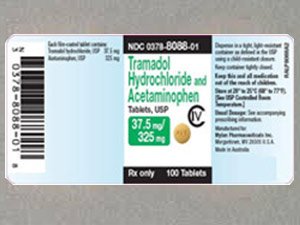Meridia 15 mg, also known by its generic name sibutramine, is a prescription medication designed to address obesity by functioning as an appetite suppressant. Obesity, characterized by the excessive accumulation of body fat, is a significant health concern associated with various complications, including cardiovascular diseases, diabetes, and musculoskeletal disorders. Meridia 15 mg operates on the central nervous system, influencing neurotransmitters in the brain such as serotonin, norepinephrine, and dopamine.
The active ingredient, sibutramine, works by inhibiting the reuptake of these neurotransmitters, thereby altering their balance in the brain. This modulation plays a crucial role in regulating feelings of hunger and satiety, making Meridia 15 mg effective in promoting a sense of fullness and reducing the desire to eat. Consequently, this leads to a decrease in caloric intake, aiding individuals with obesity in their weight management efforts.
Meridia 15 mg is typically prescribed as part of a comprehensive weight management program, which includes components such as a calorie-controlled diet, regular physical activity, and behavioral therapy. Healthcare providers often recommend this medication for individuals with a body mass index (BMI) of 30 kg/m² or higher. Alternatively, it may be prescribed for those with a BMI of 27 kg/m² or higher, especially when accompanied by obesity-related comorbidities like type 2 diabetes or hypertension.
It is essential to understand that Meridia 15 mg is not a standalone solution for weight loss. Its effectiveness is most pronounced when integrated into a broader approach that involves lifestyle modifications. Patients taking this medication are advised to adhere strictly to their prescribed diet and exercise regimen to achieve optimal results. Moreover, caution is warranted, as Meridia is not suitable for everyone, particularly individuals with a history of cardiovascular disease, stroke, or uncontrolled hypertension.
As with any medication, Meridia 15 mg may be associated with side effects. Common side effects include increased blood pressure, dry mouth, constipation, insomnia, and headaches. Patients are urged to promptly report any unusual or severe side effects to their healthcare provider. Due to potential cardiovascular risks linked to this medication, regular monitoring of blood pressure and heart rate is considered essential throughout the course of treatment.
Individuals considering the use of Meridia 15 mg should consult with a healthcare professional before initiating the medication. Healthcare providers assess the patient’s overall health, medical history, and potential risks to determine whether Meridia is a suitable option. Regular follow-up appointments are typically scheduled to monitor the patient’s progress and make adjustments to the treatment plan as necessary.
In conclusion, Meridia 15 mg is a medication designed to assist individuals in managing obesity by suppressing appetite and promoting a feeling of fullness. When used as part of a comprehensive weight management program, which includes a balanced diet and regular exercise, Meridia can be a valuable tool in helping individuals achieve and maintain a healthier weight. However, its use should be approached cautiously, with careful consideration of individual health factors and under the guidance of a qualified healthcare professional.






Reviews
There are no reviews yet.